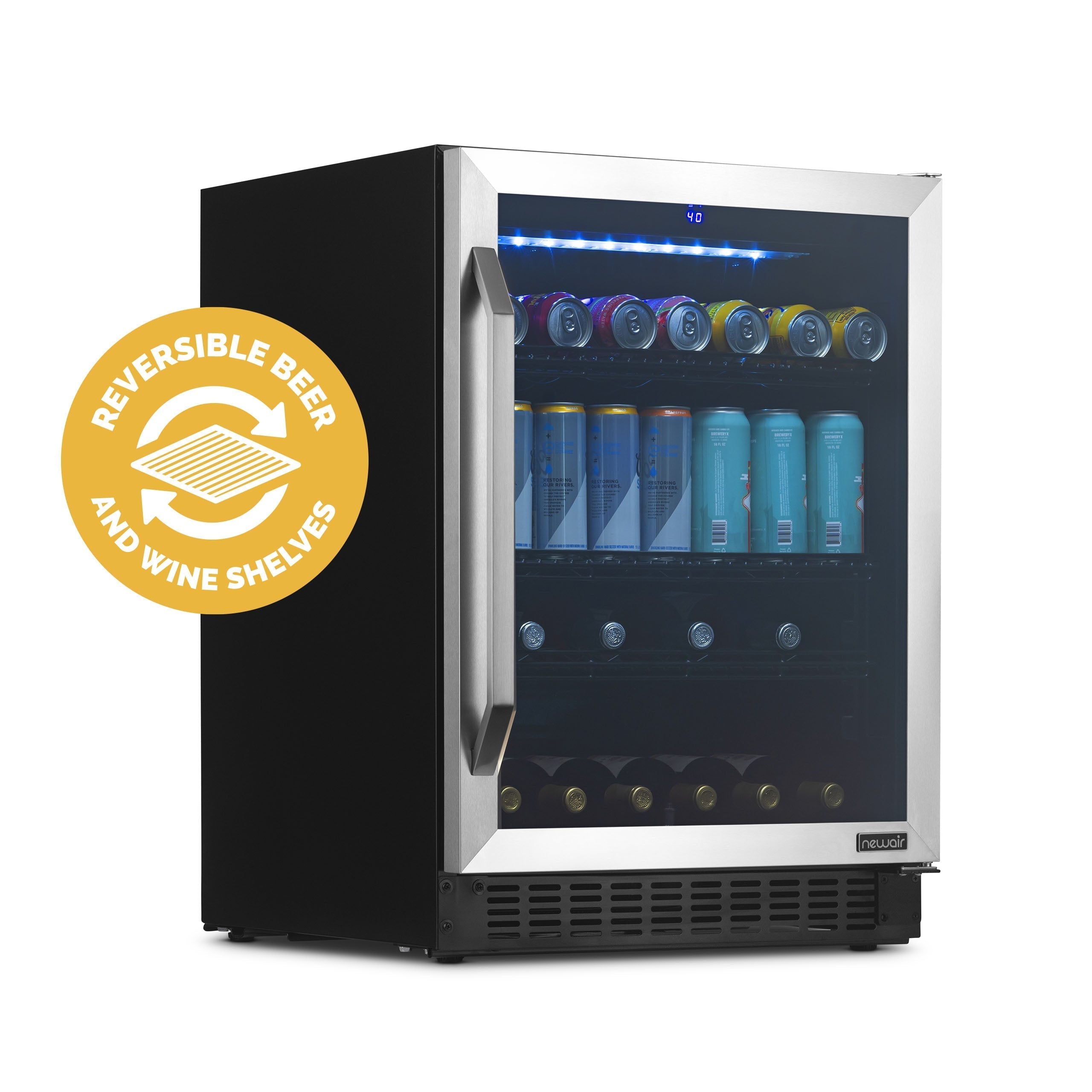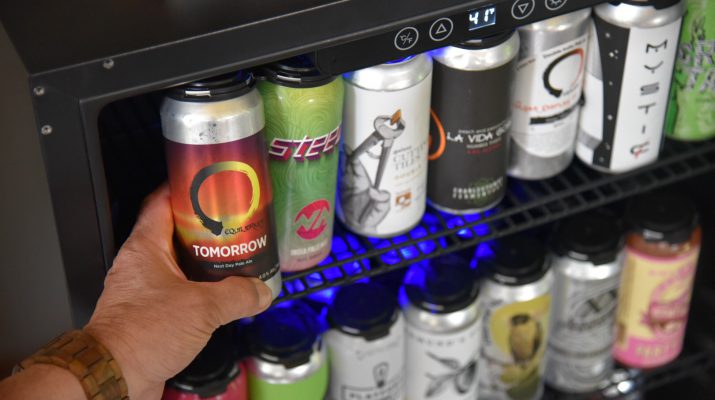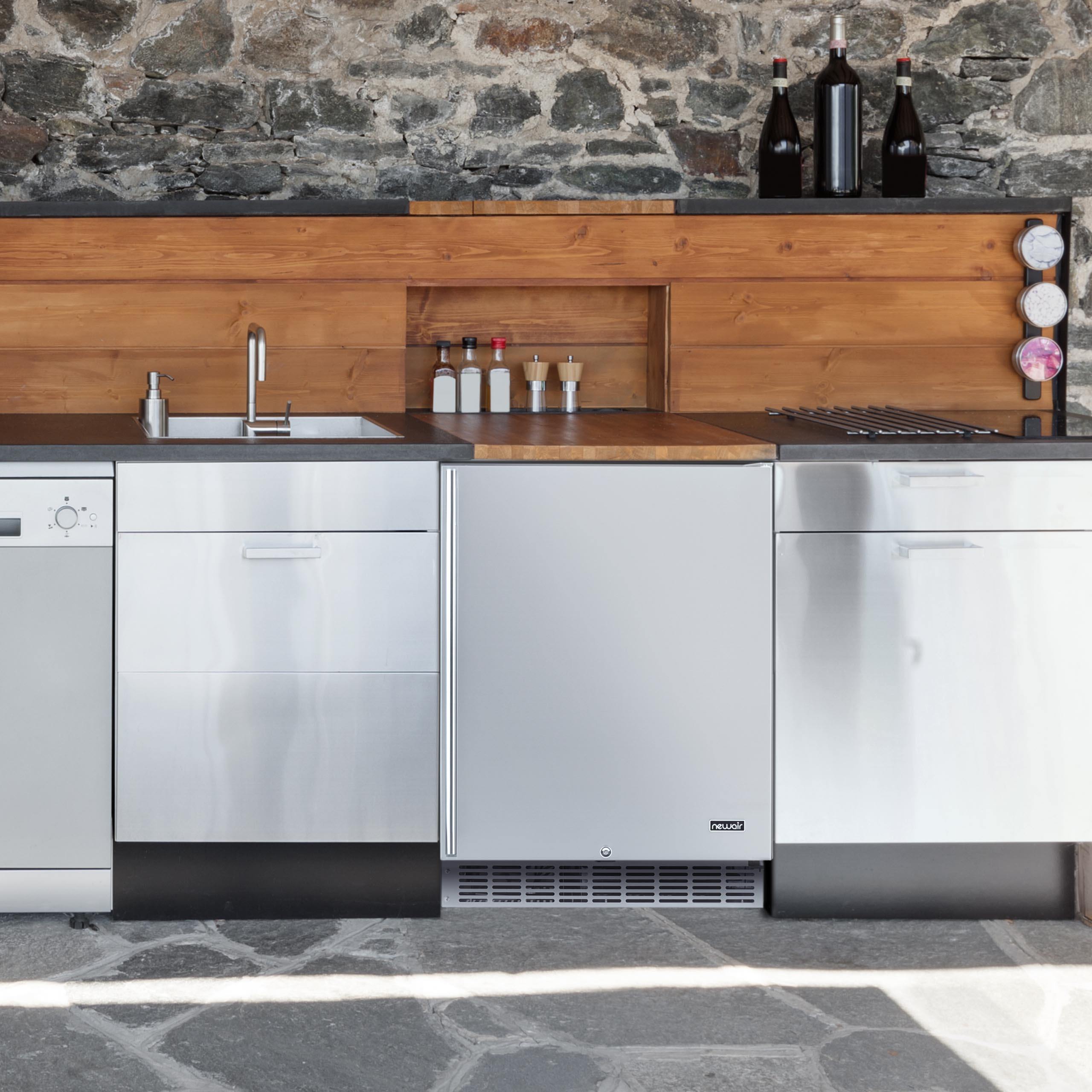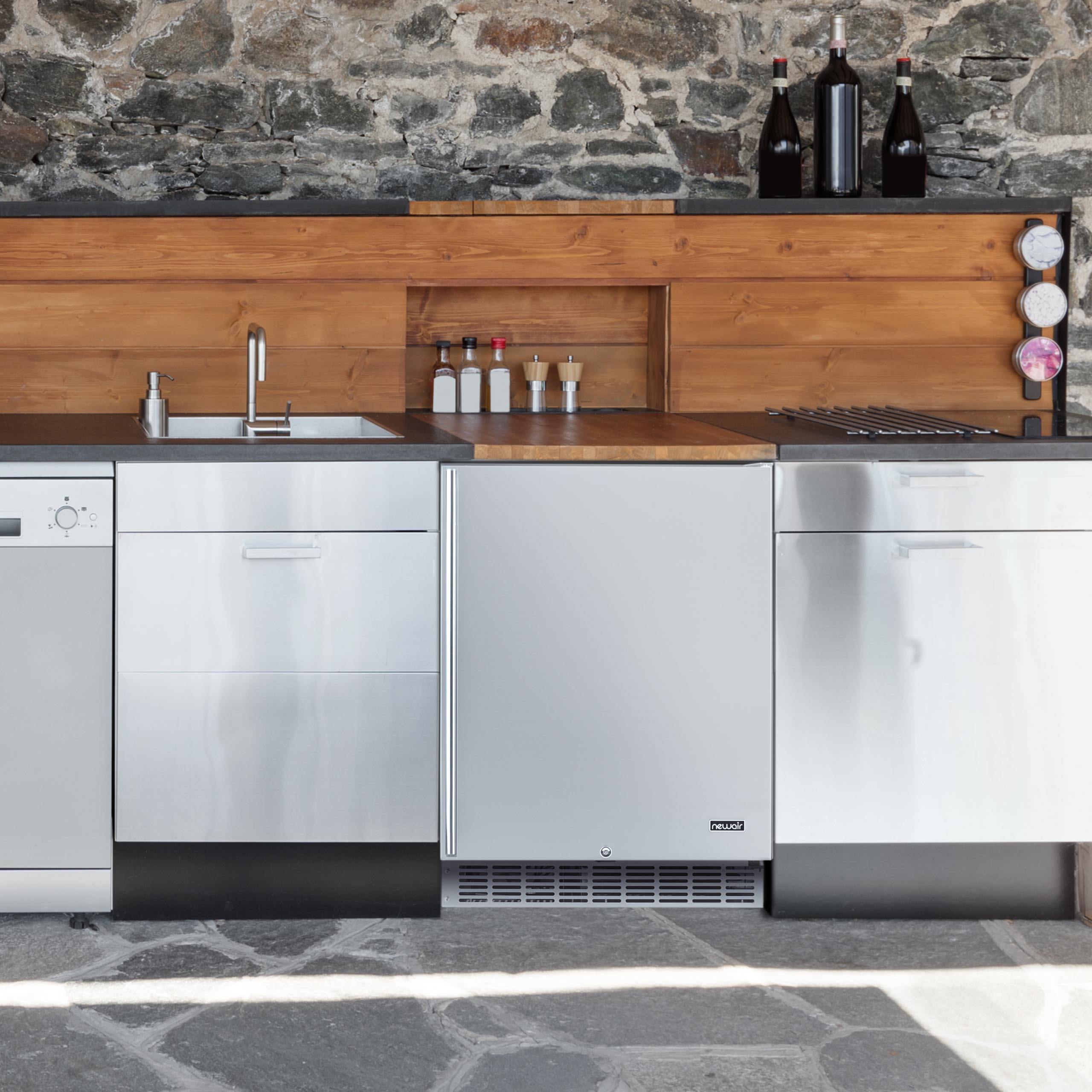Does Beer Go Bad? Everything You Need to Know About Proper Storage and Beer Expiration Dates
Whether you’re planning a Corona-soaked backyard barbecue or want to keep your favorite craft beer from local microbreweries fresh, understanding how to store beer is the first step to enjoying it.
After all, there’s nothing worse than being disappointed by a skunked beer when your taste buds were craving a refreshing pale ale.
The short answer is that yes, beer does go bad, but it can last a long time under proper storage conditions. Some beer styles last longer than others, and most have a shelf life well beyond the best-by date chosen by brewers.
So yeah, it’s complicated.
To answer all your questions, we’ve put together this ultimate guide to keeping your good beer from turning into a bad beer. Read in full for a complete understanding of all the factors that affect beer shelf life, or skip to your most burning question first.
How Does Beer Go Bad?
Like any food, beer is an organic substance, meaning it’s made from plant materials that will eventually succumb to decay, just as all living things do. Brewers do their best to make beer last as long as possible, but nothing can resist the onslaught of bacteria and chemical reactions as time passes.
There are three major ways that old beer can meet its demise (flavor-wise, anyway): light exposure, oxygen exposure and bacteria exposure.
Light Exposure
It turns out that ultraviolet light is just as bad for beer as it is for your skin. When UV light penetrates beer bottles, it reacts with one of the chemical compounds in hops, the plant material responsible for your favorite beer’s complex better flavors. This chemical reaction breaks down important flavor compounds until the look — and smell — exactly like the chemicals in skunk spray. That’s why “lightstruck” bottled beer turns into unappetizing skunky beer. Brewers seek to minimize the damage by shipping beer in darker bottles. If you’re a fan of hops-laden IPAs, look for brown glass or canned beer for a longer shelf life.
Oxygen Exposure
Oxidation is a natural aging process that eventually alters the flavor and aroma of your beer. As oxygen interacts with the chemical compounds in the beer, it breaks them down, which results in different flavors. One of the most common results of oxidation is diacetyl, which adds a buttery flavor to the beer. Other compounds cause other flavors, which can include everything from a cardboard flavor to notes of must or aged sherry. Because oxidation is caused by air leakage, bottled beers may be slightly more susceptible to this issue than cans, which have a tighter seal. As a general rule, it’s best to store beers upright for an extended period, as this minimizes the amount of beer in contact with the air (as opposed to placing them on their sides, which maximizes air exposure.
Bacteria Exposure
Eventually, all things must decay, and the cause is microbial action. Living bacteria think your beer is tasty, too, and they’ll eat away at it over time. This is relatively rare when it comes to commercially sold beer, because brewers do everything possible to minimize contamination. The alcohol content of beer also acts as a natural preservative, because microbes can’t survive in liquids with a high alcohol content. Refrigeration also helps slow the life cycle of microorganisms, including the natural yeasts you’ll find in bottle-conditioned ales.
When Does Beer Go Bad? Understanding Use-By Dates
Just about every commercially produced beer is tagged with an expiration date. Also known as the sell-by date or the best-before date, these are meant as guidelines rather than holy law about when to throw out your beer. Because no beer lasts forever, and brewers want to protect their reputations by keeping customers satisfied, they put a date on beer to let grocery and liquor stores know when to pull a product that may no longer be at its best quality.
This is not to say that expired beer is going to kill you or even that it is guaranteed to taste bad. On the contrary, properly stored beer can last for months beyond the suggested sell-by date. You can definitely buy a beer near or even past its expiration date, but be aware that it will have a shorter shelf life and should therefore be consumed relatively soon.
The Average Shelf Life of Beer
Most beers last beyond the printed expiration date on the package. When stored at room temperature, you can expect beer to last for six to nine months beyond the use-by date. Refrigeration increases this time period to up to two years.
Factors That Affect the Date Beer Goes Bad
Sell-by dates are usually just a guess, because many factors influence how long a beer will last. Here are some things to consider about your beer and its journey from brewery to your glass.
- Distance: How far the beer travels within its distribution range affects its aging. Long road trips mean your beer is older by the time it gets to you, and this increases the possibility that the beer was agitated, left in the heat or sun, etc. In general, a local beer is a fresh beer.
- Popularity: How fast is the turnover where you bought it? If your favorite imperial stout is hard to keep in stock because it’s selling like hotcakes, you can be sure it hasn’t sat around for too long before you snag it. Rare items collecting dust may be much older.
- Packaging: Because cans blot out direct sunlight and seal out oxygen and potential contaminants, they’re better at keeping beer fresh for longer periods. If you don’t like cans, brown glass bottles act like sunglasses to keep UV rays at bay and prevent skunking; green bottles are also somewhat effective. Clear bottles offer the least resistance to ultraviolet light.
- Temperature: How does the seller store the beer before you buy it? Keeping it out of direct light is critical, and refrigeration will prevent aging and allow the beer to taste better for longer. You can also take a look to see if bottles and cans are stored upright, which will minimize oxidation more efficiently than ones stored on their sides.
Additional Important Beer Freezing Questions Answered:
Does Beer Go Bad in the Fridge?
Eventually, all beer goes bad. That’s the sad truth about life. On the bright side, keeping beer in the fridge is a good way to help it last as long as possible. This is because a dark area in a cool place is the best place to store a beer to avoid the things that make it go bad. Your refrigerator is both cool and dark, as long as the door isn’t opened too often. As mentioned above, refrigeration slows down natural aging processes and allows a beer to taste fine up for a good two years after its expiration date.
A Note About Corked Beers
Corked beers — those bottles sealed with a cork held
in place by a wire cage — are a bit of a different case and require special care when
refrigerating. Corks are typically reserved for Belgian
beers, but you may see them on other wheat beers from microbreweries that like to create a vintage beer look.
In general, a cork creates a very tight seal, because it expands to completely fill the neck of the bottle. Many home brewers feel that corking is a better option than capping when it comes to long-term storage. The extreme cold inside your standard kitchen refrigerator — typically 38 degrees Fahrenheit — also creates very dry conditions, and this can cause the cork to shrink slightly. If this happens, the seal will be broken and air and bacteria can creep in, advancing the aging process and leading to an altered flavor profile.
You can prevent this from happening to your corked beers by storing them in a dedicated beer fridge instead. Like a fine wine, a corked beer does best at temperatures around 55 degrees Fahrenheit, which is cool enough to slow the aging process but warm enough to maintain reasonable humidity for the cork. Unlike wine, however, it’s best to store a corked beer upright to avoid too-rapid oxidation, which can cause a major change to the chemical balance of the beer and lead to off-flavors.
Does Beer Go Bad If It Freezes?
This depends on several factors. First, your beer bottle or can would have to survive the freezing without exploding. Liquid expands slightly when it’s frozen, but it’s the carbonation that’s the real problem, as the water pushes the carbon dioxide bubbles outward. This creates extra pressure that will eventually leave a mess of frozen beer and broken glass in its wake.
Even if you catch your mistake before the beer freezes completely, it may still be ruined. If enough pressure built up to loosen the cap on bottled beer, air leaks would lead to a disappointingly flat beer when you open it. Freezing would also be disastrous for a bottle-conditioned beer with live yeast, as the cold would kill the yeast and put a halt to its continued flavor development.
On the other hand, frozen beer can be a good thing. A German eisbock is made by freezing beer on purpose and skimming off the ice to leave behind a beer with higher alcohol content. (The science here is that the water freezes long before alcohol, so removing ice doesn’t remove any alcohol when done early in the process.) You can try this yourself, but be aware that this is likely to deaden the hops and malt flavors. Lots of non-beer snobs also enjoy beer slushies, too, but in general it’s best to rely on the fridge instead of the freezer when you need a cold beer fast.
Does Beer Go Bad in the Sun?
Yes. Though many beer drinkers blame warm temperatures for “skunking,” this particular type of bad flavor is actually caused by exposure to direct sunlight. UV rays break down the essential oils in hops extracts into different chemical compounds, one of which is an exact match for skunk spray. Brown bottles can add a layer of protection — and certainly do more to help than clear glass containers — but the best way to prevent a skunky flavor and aroma is to store your alcoholic beverages in a dark place. This is particularly important when it comes to hoppy beers that are more likely to develop a skunky taste than lighter beers like a Bud or Coors Light.
On the bright side, if you want to drink beer in the sun, go ahead and enjoy. It’s unlikely that a short period in the sun will do any harm, even if you prefer summery light beers in clear bottles.
Putting It All Together: Best Practices for Storing Beer
As you can see, a great beer is affected by all sorts of elements, including temperature, sunlight, the storage container and more. To help everything from a Bud Light to a barleywine taste its best, follow these basic beer storage tips:
- Refrigerate. Keep your beer in a refrigerator to slow the aging process and block out UV light. The ideal temperature for beer storage is about 50 to 55 degrees, though you can go colder with capped bottles and cans. A dedicated beer fridge will let you control the temperature to keep it at the perfect level for both storage and serving.
- Find a Dark Place. A good beer cooler will offer UV protection, but if you choose to keep your beer at room temperature, choose a cool room with minimal temperature changes. The ideal spot will be a dark one, where no direct sunlight can shine on your beer and start the skunking process. Your basement may be a good choice.
- Store Beer Upright. Avoid unnecessary oxidation by keeping bottles and cans in an upright position in your fridge or on the shelf. This keeps only the smallest surface area of the beer in contact with the air to slow the aging process, whereas keeping a beer on its side maximizes the amount of surface area for oxidation.
With a little extra care in storing your beer, you can help it last as long as possible and enjoy peak flavor from your favorite brews.






0 comments